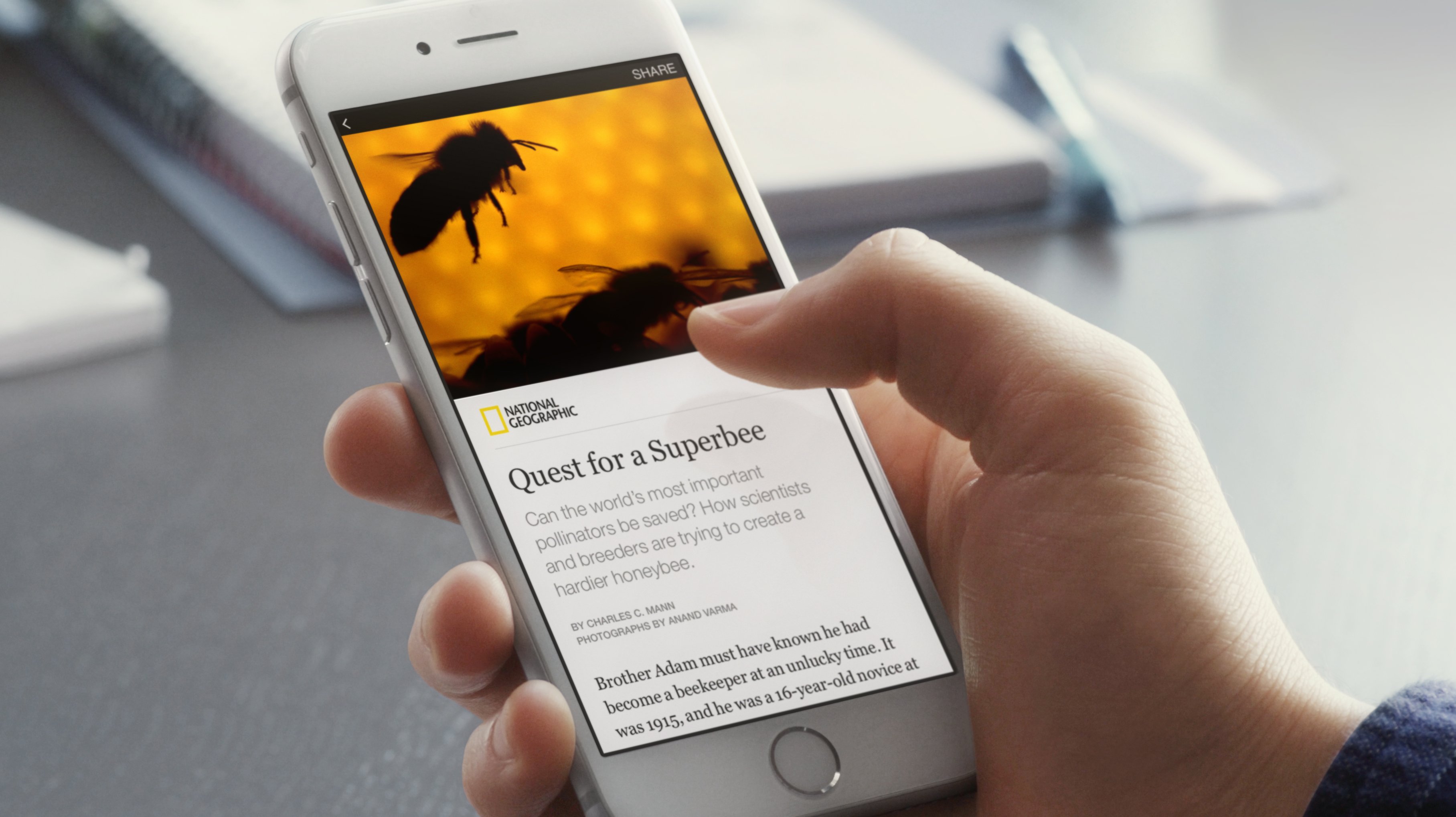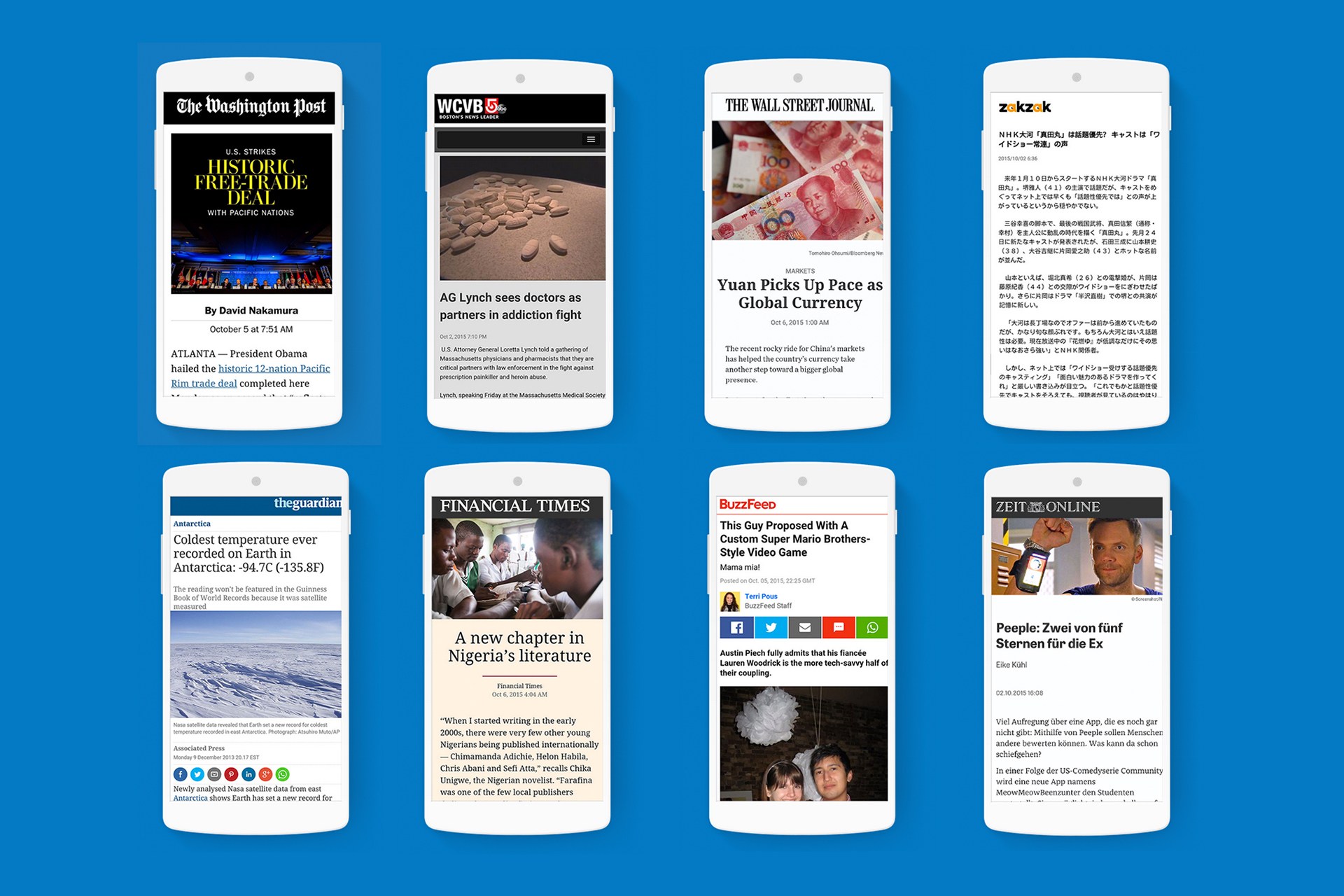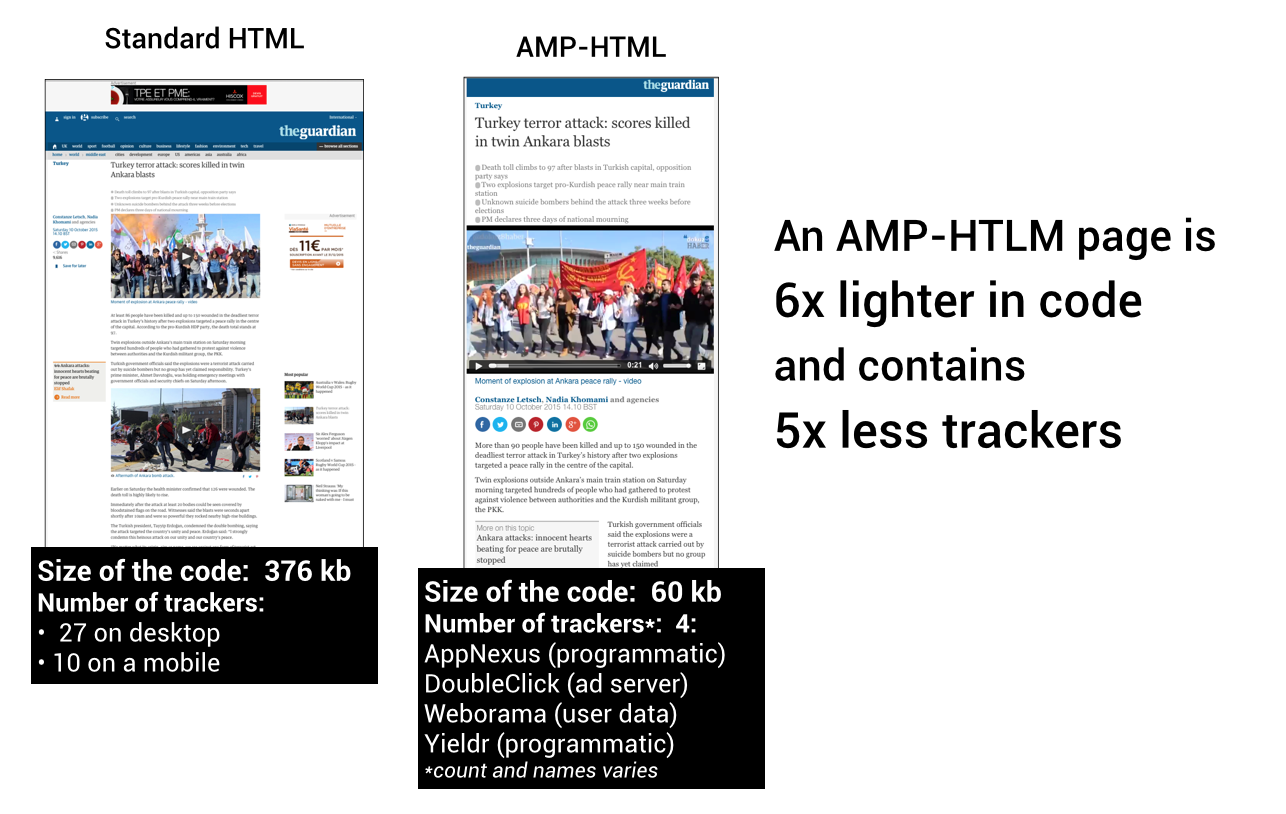



 (4 ratings)
(4 ratings)
The battle of glory that the smartphone companies fight with each other every nuance of a second is well known to one and all. Each tries overshadowing the attempts of other firms by applying its own tactics. Popular tech-giant Google too came up with an all new feature dubbed Accelerated Mobile Pages (AMP) to deliver 'blazingly fast' articles to its user base possessing smartphones and tablets.

The Accelerated Mobile Pages (AMP) project that was announced late last year is now officially live and it is claimed that the company launched this service to threaten the biggest social media platform Facebook service Instant Articles that provides the latest news to the users on a per-click basis and also challenging the supremacy of Apple News application alongside. Google possess a massive computing power and hence it can enable users to fetch articles quickly without any delay. The projects have attracted many news organizations eager to get more readers through the news hubs as well as advertising revenues.
Announcing the product in Paris, Google Chief Executive Sundar Pichai stated, "We want the mobile Web to live up to its potential to make it great for everyone, so they can quickly and easily get to the high-quality journalism you are producing. This is a priority project for Google and for me." He further added that this is not a sole organization manufactured product, but it's a result of a collaboration of a number of companies that includes Les Echos, TF1, Ouest France, Vingt Minutes in France. Other partners who previously signed up for the project includes the names of some renowned news magazines like New York Times, Washington Post, Buzz Feed, the Guardian and Wall Street Journal.

Google too commented on the service in its blog post which read, "Now when you search for a story or topic on Google from a mobile device, web pages created using AMP will appear when relevant in the top stories section of the search results page. Any story you choose to read will load blazingly fast and it's easy to scroll through the article without it taking forever to load or jumping all around as you read." Pichai further added that "cares deeply about journalism yes, because of the crucial role it plays in democratic society, ensuring the spread of knowledge and the free flow of information."
Reports claim that AMP loads mobile Web pages an average of four times faster than the current normalcy rate, and still use 10 times less data. It lets websites create light-weight versions of their pages that ensure faster loading of web pages. This is crucial since most of the users usually stop looking for the content if the websites take longer than few seconds to load.

Social media giant Facebook has been striving hard to expand its "Instant Articles" program that was launched last year and the company in December stated that it was able to sign up 350 new global media partners to ensure sleek distribution of its service over Apple and Apple devices. The service allows users to quickly view news articles almost 10-times faster than on standard connections.
Alongside the unwrapping of AMP project, Sundar Pichai also introduced Project Shield a project that is designed to safeguard publishers from Distributed Denial of Service (DDoS) attacks. For those who do not understand DDoS. It's an attack that overloads websites with simultaneous requests for pages hampering their normal execution.

When asked how it functions, the Internet giant said, The technology "lets Google intercept bad traffic before it reaches your server, providing a 'shield' against would-be attackers." Even Pichai stated that "I am happy to announce today that we will be offering Project Shield to all the world's independent news organizations. For free and also hope that in future even the smallest news organizations will be able to report the news without the fear of being taken down by digital attacks."